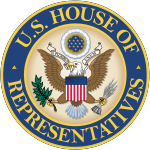 Forty Members of the House of Representatives have written President Obama urging that the intellectual property chapter of the Trans Pacific Partnership (TPP) include a requirement that countries offer 12 years of data exclusivity for new biologic drugs: “…we urge you to support current U.S. law on biologics, which provides for 12 years of protection. The U.S.-led biopharmaceutical industry would be disadvantaged if the U.S. does not ensure consistency with U.S. law as part of the TPP, because foreign countries do not provide the same type of protection rules.” The letter was signed by 20 Republicans and 20 Democrats.
Forty Members of the House of Representatives have written President Obama urging that the intellectual property chapter of the Trans Pacific Partnership (TPP) include a requirement that countries offer 12 years of data exclusivity for new biologic drugs: “…we urge you to support current U.S. law on biologics, which provides for 12 years of protection. The U.S.-led biopharmaceutical industry would be disadvantaged if the U.S. does not ensure consistency with U.S. law as part of the TPP, because foreign countries do not provide the same type of protection rules.” The letter was signed by 20 Republicans and 20 Democrats.
Click here for the July, 27 Letter to President Obama
Data exclusivity is a period during which generic manufacturers are unable to win regulatory approval based on clinical data showing the originator’s product is safe and effective. Previous free trade agreements with the United States have included periods of five years of data exclusivity for new small molecule drugs (and in some cases, three years of data exclusivity for pharmaceutical products that are not new chemical entities). If 12 years of data exclusivity for biologics is included in the TPP, it would be the agreement to include this provision.
The drug industry argues that biopharmaceutical products require longer periods of exclusivity to recoup R&D costs because the medicines are more costly and risky to develop. Health advocates argue that patent protection guaranteed by the TRIPS Agreement allows firms to recoup R&D costs, and that further intellectual property protection blocks generic competition and raises prices.
Six of the representatives who signed this letter to President Obama also signed another letter last week urging the administration to uphold a 2007 trade policy that grants greater flexibility in intellectual property rules – including data exclusivity – that influence access to medicines (Reps. Crowley, Kind, Larson, Neal, Pascrell, and Thompson).




